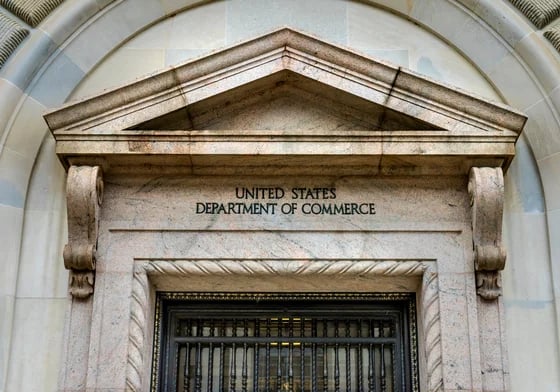 The U.S. Commercial Service (CS), part of the Department of Commerce’s International Trade Administration, was described by former Assistant Secretary of Commerce Maria Cino as the best-kept secret in government. For small and medium-sized exporters (SMEs), this astute observation rings true. The U.S. Commercial Service is a small and highly valuable gem, despite being chronically underfunded and understaffed.
The U.S. Commercial Service (CS), part of the Department of Commerce’s International Trade Administration, was described by former Assistant Secretary of Commerce Maria Cino as the best-kept secret in government. For small and medium-sized exporters (SMEs), this astute observation rings true. The U.S. Commercial Service is a small and highly valuable gem, despite being chronically underfunded and understaffed.
I worked for the CS for nearly 30 years, 25 of those years as a director of a Commercial Service U.S. Export Assistance Center (USEAC), retiring in December 2019. The opportunity to help a multitude of companies increase their export sales was a wonderful experience.
The CS’s greatest strengths rest in the highly dedicated international trade specialists in the USEACs across the country, and the commercial specialists and assistants (the locally-engaged staff) in the commercial sections of the U.S. embassies and consulates around the world. The latter are managed by a cadre of very impressive foreign service officers.
 ExporTech program, throughout the year.
ExporTech program, throughout the year.
SMEs in search of high-quality market research, sales agents or distributors, background checks on potential international partners, and sales leads should contact their nearest USEAC and ask to meet with an international trade specialist (ITS). If your company manufactures products, invite the ITS to tour the factory. I always found it very helpful to actually see how the product I was asked to help promote internationally was made. Describe in detail your exporting history, even if it’s minimal, and your exporting goals. The more information you provide, the better the ITS can help you.
The trade specialists work in tandem with the commercial sections overseas, thus offering your company a vast international reach. Throughout my career, I encountered numerous instances of companies contacting the commercial sections and bypassing the local USEAC. This effort generally created delays for the exporter since the commercial sections usually responded by advising the company to talk first with an ITS. The reason for this is so the ITS can determine a company’s readiness, willingness and capabilities. This is entirely fair; successful exporting takes time and resources.
Moreover, be patient. The ITSs have many clients and will assist you as soon as they can. I can assure you that customer service is paramount. The ITS will stay in communication with you. Remember, too, that while the international trade specialists communicate with their colleagues in the U.S. embassies and consulates daily, the latter need time to conduct market research, agent and distributor searches, and background checks on potential partners for American companies. Ask the ITS to provide you with a time frame.
Finally, there are very reasonable fees for the formal services such as the Gold Key Service (a program in which the exporter travels to an international market to meet with potential partners identified by the commercial section). I worked on a large number of Gold Keys and always thought it was the CS’s best service.
Meet with your local USEAC. Talk with and establish a relationship with an ITS. Attend the CS’s local events. Use the CS’s well-established and highly-effective programs and services. It will be one of the best decisions you will ever make in your company’s exporting journey.
Like what you read? Subscribe today to the International Trade Blog to get the latest news and tips for exporters and importers delivered to your inbox.
